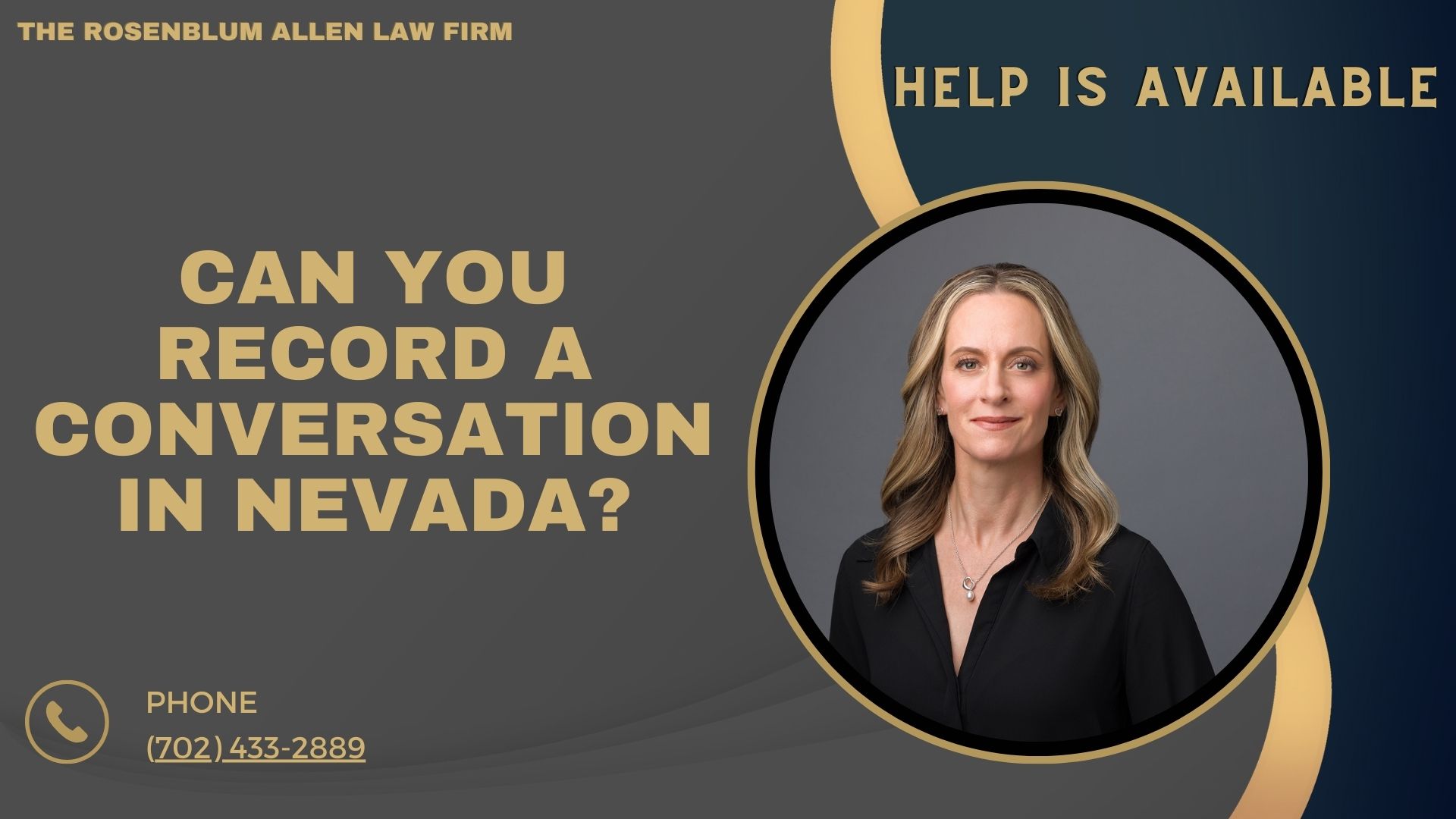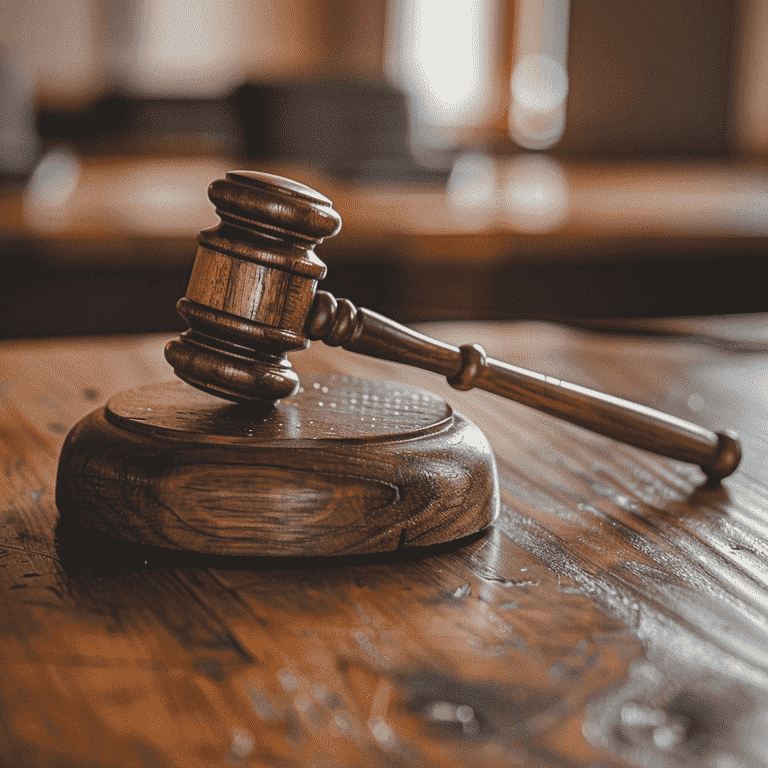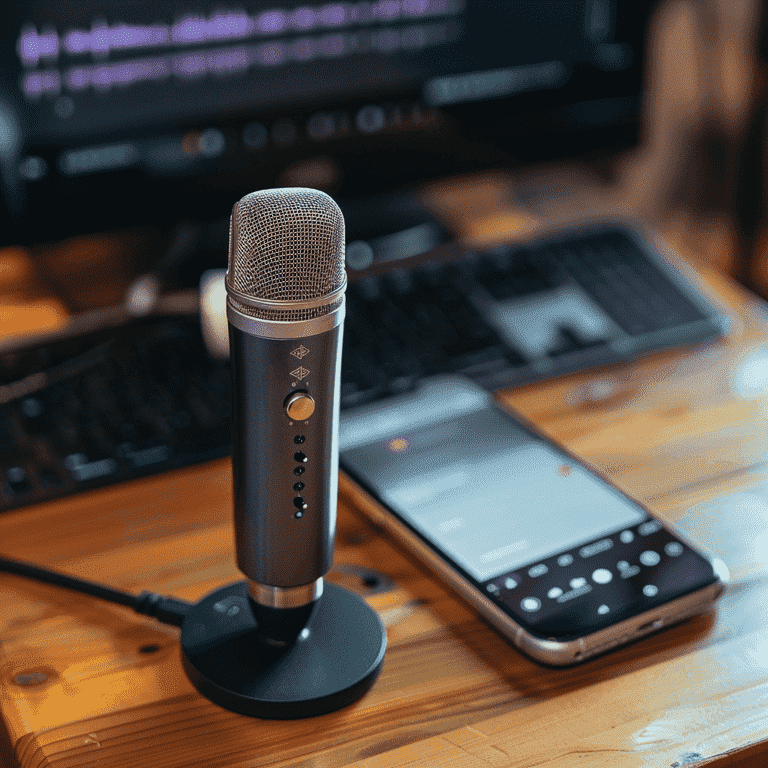Have you ever wondered if you can legally record a conversation in Nevada? You might want to record a personal chat, a business meeting, or a phone call. Knowing the laws is crucial. Knowing these rules can save you from legal trouble. They can also help you protect your rights. Let’s dive into what you need to know about recording conversations in Nevada.

Nevada Recording Law Overview
In Nevada, the recording laws can be tricky. The state follows a “one-party consent” rule, but exceptions exist. Here’s a breakdown:
Explanation of One-Party Consent Rule
In Nevada, you can legally record a conversation if you’re a part of it. This is known as one-party Consent. It means:
You don’t need the other person’s permission if you’re involved in the conversation.
You can record phone calls and in-person chats without informing the other party as long as you’re participating.
Differences Between One-Party and Two-Party Consent Laws
Not all states follow the same rules. Some require all parties to consent to the recording. Here’s how they differ:
One-Party Consent (like Nevada): Only one person in the conversation needs to know about the recording.
Two-Party Consent (like California): Everyone involved must know and agree to the recording.
Understanding this difference is critical, especially when dealing with people from other states.
Legal Requirements for Recording Conversations in Nevada
One-Party Consent
Definition and Explanation
One-party Consent means if you’re part of the conversation, you can record it. You don’t have to tell the others. It’s simple but powerful. You have the right to document what’s being said if you’re involved.
Implications for Recording Conversations Without the Other Party’s Knowledge
This rule allows you to:
Record phone calls where you’re a participant.
Document in-person meetings without needing the other person’s permission.
However, be cautious. Just because it’s legal doesn’t mean it’s always ethical.
Exceptions to One-Party Consent
Situations Where All Parties Must Consent
There are times when Nevada’s one-party consent rule doesn’t apply. These exceptions include:
Confidential Communications: If the conversation is considered confidential by law, you need Consent from all parties.
Specific Professional Settings: Doctors, lawyers, and therapists often have stricter confidentiality rules.
Examples of Exceptions and Their Legal Implications
For example:
Healthcare: You can’t record a medical consultation without the doctor’s Consent.
Legal Settings: Conversations with your attorney may require mutual Consent to be recorded.
Knowing these exceptions can keep you out of legal hot water.

Recording Conversations in Different Scenarios
Recording laws apply differently depending on the situation. Let’s explore some common scenarios.
Personal Conversations
When You Can Legally Record
You can record if you’re part of the chat in personal settings. For instance:
Family discussions
Conversations with friends
Remember, while it’s legal, informing the other party when possible is also polite.
Ethical Considerations and Best Practices
Ethically, consider:
Respecting privacy: Always think about the other person’s right to privacy.
Being transparent: Informing the other party can build trust and avoid misunderstandings.
Business Conversations
Recording Meetings and Calls
In business, you can record meetings and calls if you’re participating. This includes:
Internal team meetings
Client calls
Employer and Employee Rights
Both employers and employees have rights:
Employers: They can record for quality control or training but should inform employees.
Employees: They can record to protect themselves but should be aware of company policies.
Public vs. Private Settings
Distinction Between Public and Private Spaces
The location of the conversation matters:
Public Spaces: Generally, public recording is more permissible.
Private Spaces: Recording in private spaces requires more caution.
Legal Considerations in Each Setting
In public spaces:
Less expectation of privacy: Easier to justify recording.
In private spaces:
Higher expectation of privacy: More likely to require Consent.
Knowing these nuances can help you stay within the law. They apply to recording conversations in Nevada.

Consequences of Illegal Recording
Recording conversations illegally in Nevada can have serious consequences. Understanding the potential penalties is important to avoid getting into trouble.
Criminal Penalties
If you record someone without proper Consent, you could face criminal charges. Here are some potential consequences:
Fines: You might have to pay hefty fines.
Imprisonment: In severe cases, you could face jail time.
Criminal Record: An illegal recording conviction can stay on your record, affecting future opportunities.
Case Examples of Violations
To illustrate, here are a few real-life examples:
Case 1: An individual secretly recorded a private meeting and was fined $10,000 and jailed for six months.
Case 2: A business owner recorded employee conversations without Consent and was sued, resulting in a significant financial penalty.
These examples highlight the severe nature of illegal recording.
Civil Penalties
Beyond criminal penalties, there are also civil repercussions. If someone finds out you recorded them illegally, they can sue you.
Lawsuits and Damages
Possible outcomes include:
Compensatory Damages: Paying for any harm caused by the recording.
Punitive Damages: Additional fines to punish and deter future violations.
Legal Fees: You might also have to cover the other party’s legal expenses.
Notable Civil Cases in Nevada
Some notable cases in Nevada include:
Case 1: A person sued their ex-spouse for recording conversations during their divorce. The court awarded significant damages for invasion of privacy.
Case 2: An employee won a lawsuit against their employer for illegal recording, resulting in compensatory and punitive damages.
These cases underscore the financial risks of illegal recording.

Using Recorded Conversations as Evidence
Recorded conversations can be strong evidence in legal cases. But, there are strict rules about if they can be used.
Admissibility in Court
For a recorded conversation to be admissible in court, it must meet specific criteria.
Criteria for Admissibility
Legality: The recording must comply with Nevada’s one-party consent law.
Relevance: The content must be relevant to the case.
Authenticity: The recording must be genuine and unaltered.
How Recorded Conversations Can Be Used in Legal Proceedings
Recorded conversations can be used to:
Support Claims: Providing evidence in disputes, like proving what was said in negotiations.
Discredit Testimony: Challenging the credibility of a witness by showing contradictory statements.
Impact on Legal Cases
Recorded conversations can have a significant impact on various types of legal cases.
Divorce and Family Law Cases
In divorce and family law:
Child Custody: Recordings can reveal necessary information about parenting practices.
Alimony and Support: Conversations about financial arrangements can be crucial.
Criminal Defense and Prosecution
In criminal cases:
Defense: Defendants might use recordings to prove their innocence or show coercion.
Prosecution: Prosecutors might use recordings to demonstrate intent or corroborate other evidence.
Understanding how recorded conversations are used in court can help you. It can help you make informed decisions about recording.

Practical Tips for Recording Conversations Legally
Follow these practical tips to stay within the law and avoid ethical pitfalls.
Best Practices
Recording legally and ethically involves:
Informing Other Parties: When possible, let others know you’re recording.
Keeping Detailed Records: Note when, where, and why you recorded the conversation.
Respecting Privacy: Avoid recording in situations where privacy is expected.
Tools and Technology
Using the right tools can make recording more accessible and more reliable.
Recommended Recording Devices and Apps
Smartphones: Most smartphones have built-in recording features.
Dedicated Devices: Portable digital recorders offer higher quality and reliability.
Apps: Apps like Rev and Otter provide transcription services and recording.
Ensuring Quality and Reliability of Recordings
To ensure your recordings are precise and reliable:
Test Equipment: Always test your device before essential conversations.
Store Safely: Back up recordings to prevent loss.
Check Laws: Make sure your method of recording complies with Nevada law.
By following these tips, you can record conversations legally and well. Doing so protects yourself and others.

Breaking It All Down
Recording conversations in Nevada can help. But, it comes with legal and ethical duties. Remember:
Know the Law: Understand Nevada’s one-party consent rule and its exceptions.
Be Ethical: Consider the implications and inform others when possible.
Stay Informed: Keep up with changes in the law to ensure you’re always compliant.
If you ever feel unsure about recording, consult with a legal professional. Staying informed and cautious will help you navigate these situations effectively and responsibly.

Frequently Asked Questions
Can I Record a Conversation if I'm Not Part of It?
No, you cannot. Nevada law requires you to be part of the conversation to legally record it. Recording without being a part of it is illegal.
Is It Legal to Record Conversations in Public Places?
Yes, generally it is. In public places, there’s less expectation of privacy. Yet, always be respectful and considerate of others.
What Should I Do if My Employer Records Me Without Telling Me?
If you believe your employer recorded you without your knowledge, speak to a legal advisor. You might have grounds for a legal complaint.
Can I Record a Conversation with My Doctor Without Their Consent?
No, you cannot. Conversations with medical professionals are confidential and must mutual consent to record.
Are There Any Penalties for Illegally Recording a Conversation?
Yes, there are. You could face fines, imprisonment, or civil lawsuits. The penalties depend on the severity and context of the violation.
How Can I Prove That I Had Consent to Record a Conversation?
Keep detailed records. Note the date, time, and context of when consent was given. It is best to have written or recorded proof of consent.
What If Someone Records a Private Conversation Without My Permission?
Consult a lawyer. You can sue them. You can sue for invasion of privacy.
Can Employers Record Workplace Meetings Without Informing Employees?
Employers can record meetings if they are participants. However, it is good practice for employers to inform employees about recording policies.
Are Recording Phone Calls Treated Differently Than In-Person Conversations?
Nevada’s one-party consent rule applies to phone calls and in-person conversations. You can record a call as long as you are part of it.
Do I Need to Inform the Other Party When Recording a Business Meeting?
Legally, you don’t have to if you are part of the conversation. However, it’s respectful and can prevent misunderstandings if you do.
What Are My Rights if I Find Out I Was Recorded Illegally?
You have the right to take legal action. Speak with an attorney to explore your options for addressing the illegal recording.
Can I Use a Recorded Conversation as Evidence in Court?
Yes, if it was legally recorded and relevant to the case. It must also be authentic and unaltered to be admissible in court.

Additional Resources for You
Our lead attorney, Molly Rosenblum Allen, Esq., has also created several other resources to help you in your time of need. Here are some additional services provided by The Rosenblum Allen Law Firm:
- Criminal Defense Attorneys: Offering robust defense strategies to protect your rights in criminal cases.
- Las Vegas DUI Lawyer: Effective representation for DUI charges to help you navigate the legal system.
- Domestic Violence Lawyer Las Vegas: Dedicated support and defense in domestic violence cases.
- Drug Possession Lawyer: Providing legal defense for drug possession charges to safeguard your future.
- Sex Crimes Attorney: Specialized defense for sex crime accusations, ensuring your rights are protected.
- CPS Defense Attorney: Helping parents navigate Child Protective Services cases and defend against accusations.
- Misdemeanor Lawyer: Legal assistance for misdemeanor charges to minimize impact on your life.
- Las Vegas Warrant Defense Attorney: Addressing warrants and providing defense to resolve legal issues effectively.
- Las Vegas Probation Violation Attorney: Representation for probation violation cases to help maintain your freedom.
- Theft Crime Defense Lawyer: Defending against theft charges with strategic legal approaches.
- Kidnapping Lawyers: Providing defense for kidnapping charges to ensure fair treatment in court.
- Juvenile Defense Lawyers: Specializing in juvenile defense to protect the rights and futures of young clients.
- Firearms Lawyer Las Vegas: Legal support for firearm-related charges to defend your Second Amendment rights.

Outside Resources for You
Here are some offsite resources for you:
- American Civil Liberties Union (ACLU) – Privacy and Surveillance: Offers resources and information on your rights, including privacy and recording laws.
- National Association of Criminal Defense Lawyers (NACDL) – Resources: Offers resources and support for individuals facing criminal charges.
- Electronic Frontier Foundation (EFF) – Know Your Rights: Offers resources on digital privacy and recording laws, helping you understand your rights in the digital age.

A Special Message from Our Lead Attorney, Molly Rosenblum Allen, Esq

Thank you for exploring the resources I’ve provided. I hope you found them informative and helpful. If you have any further questions or need legal help, please don’t hesitate to reach out. You can schedule a free consultation by calling (702) 433-2889. I look forward to the opportunity to assist you with your legal needs.






